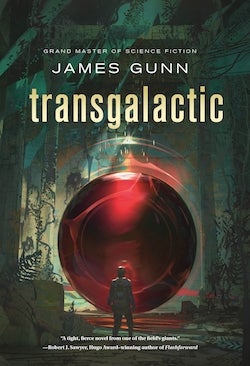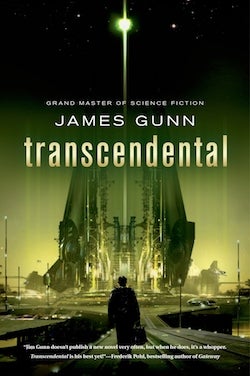James Gunn, the last surviving author of the genre’s Golden Age, believes it can help, anyway.
By Mark Alpert on October 23, 2018

There was once a time when robots roamed the surface of Mercury, when a shape-shifting alien emerged from the ice of Antarctica, and when a galactic empire of 25 million planets spanned the Milky Way. It was called the “Golden Age” of science fiction, the period from the late 1930s to the late 1940s, when pioneering authors such as Isaac Asimov and Robert A. Heinlein wrote their first mind-bending stories. And though newer literary movements have mutated sci-fi’s DNA since then, the last surviving storyteller of the Golden Age—95-year-old James Gunn—is still writing.
A longtime resident of Lawrence, Kansas, Gunn started writing short stories in 1948 for the panoply of magazines that catered to science-fiction fans in the postwar years, including Amazing Stories, Astounding Science Fiction (now known as Analog), and Galaxy. Over the following decades he authored dozens of books; his 1962 novel The Immortals was turned into a television series, and his 1972 masterpiece The Listeners inspired many researchers to join the search for extraterrestrial intelligence. But perhaps Gunn’s greatest accomplishment was making science fiction more respectable. As a professor at the University of Kansas, he established a center for studying the genre and wrote several books that recounted its history.



Through it all, Gunn kept churning out novels, short-story collections, anthologies, and histories. Last year, Tor Books published the third novel in his Transcendental trilogy, which features a spaceship called the Geoffrey and a group of human and alien travelers who tell each other stories, like the pilgrims in Chaucer’s Canterbury Tales. Gunn says the most important new sci-fi trend is the rise of so many great women writers, which he believes is changing the genre for the better. “Science fiction makes people more willing to think boldly and broadly,” Gunn says. “It’s good for the human species.”
The views expressed are those of the author(s) and are not necessarily those of Scientific American.
